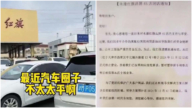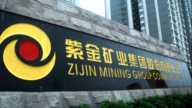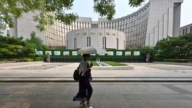【新唐人2013年09月23日訊】暢銷書作家、美國《華爾街日報》中國分社前社長麥健陸(James McGregor)新作《共和國的長子們:揭開中國經濟高速成長的真相》(No Ancient Wisdom, No Followers: The Challenges of Chinese Authoritarian Capitalism)中文譯本最近在台灣發行。作為一個居住在中國超過25年的中國通,作者在書中提出「中國權威資本主義」的概念,對中共權貴把持的國企毫無節制的投資支出、資源浪費、貪腐盛行等方面進行了分析,撕破了中國經濟所謂風光亮麗面紗背後的醜陋面孔。
麥健陸在新書中指出:倍受吹捧的「中國模式」,其實是一種獨特的威權資本主義。中共所主導的國有企業享有國家最大的補助與市場保護,最終的目的在滋養龐大的國有企業站上世界舞臺。
這本書的中文譯本最近在台灣《天下雜誌》出版。
天下雜誌編輯邱小姐:「中國經濟的議題,一直以來都是天下雜誌關注的議題,這本書本身從撰寫的內容就是不一樣,然後幫助台灣人更了解中國的一些議題,再來很多臺商都知道,跟中國交易做生意,一直以來都不是簡單的事。」
來自美國明尼蘇達的麥健陸,曾擔任《華爾街日報》、道瓊社等媒體派駐中、臺兩岸的高級主管,也曾出任中國美國商會(American Chamber of Commerce)會長任期達10年之久。長年穿梭在中國政商高層的他,目睹了中國所謂風光亮麗的經濟成就背後,一般人所看不見的醜陋與黑暗。
美國「南卡羅萊納大學」艾肯商學院教授謝田:「我想這本書翻譯出來,可能還沒有把他的原意完全的翻譯出來,但我想這本書又非常好,它實際上是一個把中國這個所謂的經濟成長,真實的一面和那些假象綜合在一起,比較系統化的完整的體現出來,對人類認識中國經濟、中國企業有非常好的幫助,主要是資料蒐集有些拿不到,或者理解不了。」
麥健陸的新書分為5個章節,分別為:回到原點﹔政策與騙局﹔威權資本主義的難題﹔全球舞臺上的地方戲曲﹔改造中國模式。
新書強調,中共是權威資本主義的總指揮與最大受益者。中共權貴把持國有企業的發展和對資源的掠奪,中共政權則對國企實行獨特支持和保護。作者在5個章節中進行了深層的剖析。
美國「南卡羅萊納大學」艾肯商學院教授謝田:「中國改革開放,中國或者經濟走向資本主義,類似資本主義的體制,那不是一個真正的資本主義,因為它沒有資本主義的公平競爭、媒體自由、社會自由、法治這些因素,這實際上是種權貴資本主義,或裙帶資本主義,即使在這種類似資本主義的經濟發展模式之下,中國的老百姓並沒有得到應有的好處,而是這整個過程變成中共權貴或中共共產黨員攫取社會財富一個新的方法,這個就是中國過去三十幾年所謂的經濟高速增長的真實面目。」
目前中國經濟陷入困境,中共現任高層領導要進行改革,遭遇到根深蒂固的既得利益集團的強烈反對及阻撓。麥健陸在書中揭示,中國國企是一種投入驅動的成長,而不是生產力帶動的成長。他表示,由於國企容易獲得資金,都用這種資金來炒房,從而排擠掉民營企業生存的空間,也擴大了資金的錯置。
採訪/熊斌 編輯/黃億美 後製/王明宇
New book reveals the ugly truth behind the glamorous appearance of China’s economy
James L. McGregor is an American author and former China
Bureau chief at the Wall Street Journal.
The Chinese version of his new book, “No Ancient Wisdom,
No Followers: The Challenges of Chinese Authoritarian
Capitalism”, was recently published in Taiwan.
As a China expert who had lived in China for over 25 years,
the author introduces the concept of “Chinese
Authoritarian Capitalism” in his book.
He gives analyses on China’s state-owned enterprises
which are exclusively held by CCP bigwigs,
including their unconstrained investments, waste of
resources and extensive corruptions.
The book uncovers the ugly truth behind the “glamorous”
appearance of China’s economy.
In his new book, James McGregor wrote that
“the much-vaunted China Model has morphed in the past
decade to a one-of-a-kind system of authoritarian capitalism”.
He says the Communist Party’s state-owned enterprises are
always provided with the best subsidies and market protection,
and the ultimate goal is to foster these to become
mammoth enterprises that compete on the global stage.
The Chinese version of McGregor’s book was recently
published by Taiwan based CommonWealth Magazine.
Ms. Qiu, editor of CommonWealth Magazine:”The issue
of China’s economy has always been a focus of our magazine.
The content of this book is quite unique, and can help
Taiwanese people know more about mainland China.
In fact many Taiwanese business people have learned that
dealing with mainland China is never an easy job.”
Born in Minnesota, U.S., James McGregor has worked as
executive for Wall Street Journal’s China and Taiwan bureaus
and Dow Jones & Company.
He had also been chairman of the American Chamber of
Commerce in China for ten years.
From his decades of experience working with China’s
political and business leaders, McGregor has seen the ugly
truth that is little known by the average person,
behind the glamorous appearance of China’s economy.
Xie Tian, professor at University of South Carolina
Aiken School of Business: “Maybe the translated version
can’t fully deliver all the messages the original book carries.
However, I think it is still an excellent book
as it can really express the big picture behind China’s
so-called economic development in a systematic way, and
comprehensively describes it’s truth face and the illusions.
This book can help the world understand China’s economy
better, because a big problem is that much of the data
on China is difficult to obtain or hard to understand.”
McGregor’s new book is composed of 5 chapters,
which titles are “State Enterprise Comes Full Circle”,
“Industrial Policies and Deceptive Practices”,
“The Conundrum of Authoritarian Capitalism”,
“A Local Repertoire on the Global Stage”,
and “Reengineering the China model”.
McGregor’s new book is composed of 5 chapters, which titles
are “Back to the origin”, “Policy and scam”, “Dilemma of
Authoritarian Capitalism”, “Local opera on the global stage”,
and “A reform of China model”.
The book makes the point that, as the Authoritarian Capitalist
commander, the Chinese Communist Party (CCP)
benefits most from such an economic system.
The party bigwigs have control over all state-owned
companies and resources,
and the Communist regime is responsible for supporting
and protecting those enterprises.
In the 5 chapters of his book,
the author analyzes this system in detail.
Xie Tian: “Since the Reform and Opening up, China may
have developed into an economic system that looks
similar to Capitalism.
However, that is not real Capitalism because there is
no fair competition, freedom of press, social freedom,
the rule of law, or other factors like these.
So China’s capitalism is indeed a kind of Authoritarian
Capitalism, or Crony Capitalism.
Even under such a capitalist-like system of economic
development, ordinary Chinese people haven’t gotten
what they deserve.
The whole process thus becomes a new method for
party leaders or their followers to plunder social wealth.
This is the truth of China’s so-called rapid economic
growth in the past three decades.”
As China’s economy gets into big trouble, the CCP’s
incumbent leaders have proposed to make reforms.
However, their plan has been strongly opposed and
seriously obstructed by vested interest groups.
McGregor reveals in his book that the growth of the CCP’s
state-owned enterprises is motivated by investment
rather than productivity.
As it is much easier for these enterprises to get capital,
they spend much of it investing in real estate.
This not only stomps out private enterprises’ room to survive,
but also worsens misplacement of capital.





























